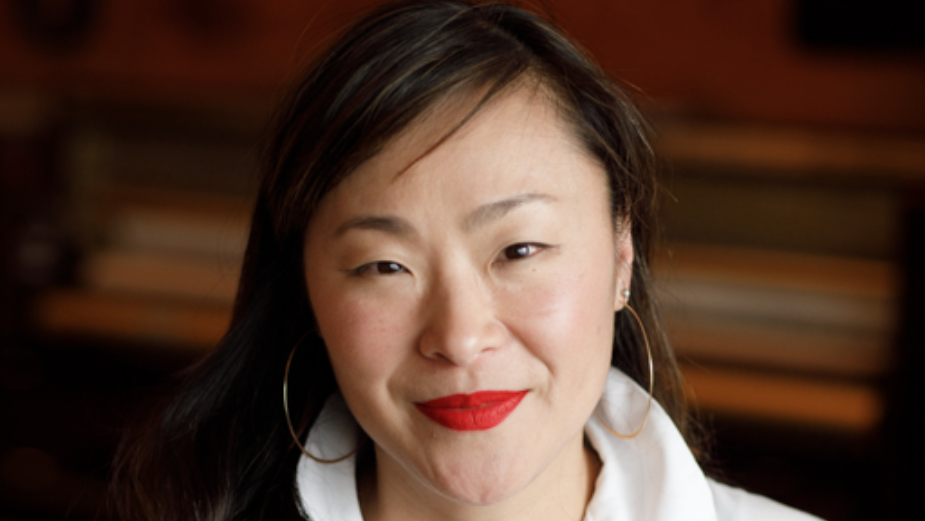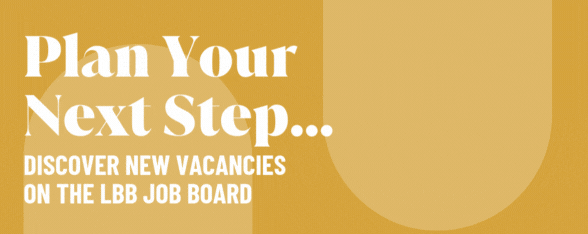
Meet Your Makers: Finding the Balance Every Day with Sue Lee

Having worked in production for over 15 years, Sue has expertise in producing and leading high-quality work across the production landscape from branding/marketing, live-action production, animation, post-production and audio production. Prior to Antfood, Sue helped lead content branding efforts for Jordan/Nike and Motorola at Los York, a production and creative agency. As executive producer for The Mill, she helped build the creative studio that partnered with their post-production arm. Sue earned her stripes at The Ebeling Group, where she worked with award-winning production companies on six continents. Sue’s credits include producing large-scale initiatives for Nike/Jordan, Sonos, Fitbit, Motorola, Google, Coca-Cola, IBM and Apple. At her heart is a passion for craft and a desire to create meaningful work. Most recently: IBM Sustainability, CBS Sonic Branding, Google Hacking, and Cadillac Celestiq launch.
LBB> What first attracted you to production - has it been an industry you’ve always worked on or did you come to it from another area?
Sue> I graduated with a psychology degree but knew I wanted to work in the snowboard industry, as that was my passion after college. I was able to talk my way into a project manager role at JDK design studio which allowed me to work on all things Burton Snowboard. Those were definitely some of the best days of my life. From graphic design project management, I transitioned into motion graphics production, working with global directors, eventually becoming an executive producer at The Mill, Los York. In 20? I made the final transition into an EP at THE BEST music studio, Antfood.
LBB> What was your first role in the production world and how did this experience influence how you think about production and how you grew your career?
Sue> When I was at JDK, we were creating all the marketing and product-related graphics for Burton Snowboards, Merrell and Converse. I had a team that I loved, a client that I looked up to, and had a ton of energy. I realised as I transitioned out of that role that we spend more time at work than anything else. And if you are going to spend that much time doing something, you have to love it. Find your place, and if you don’t enjoy walking into that office and being with your team, either move on or make the changes to create that environment. It’s too much of your time to not have a smile on your face most days.
LBB> How did you learn to be a producer?
Sue> My psychology degree taught me to listen and understand the needs of my clients and collaborators. One of the most important skills a producer should know is how to communicate ideas, deliver feedback, and the dreaded overage discussion. The reality is that all of our creatives and clients have heard it before and experienced worse, so don’t be afraid, but deliver the message with confidence, a smile, the facts and reassurance.
LBB> Looking back to the beginning of your career, can you tell us about a production you were involved in where you had to dig deep and that helped you to grow as a producer?
Sue> I remember a very specific project where I was dealing with a senior executive at a network. The client was well past “scope creep” so I had to inform them that any additional changes would be considered an overage per the agreed contract. She pushed back and basically screamed at me stating “I have never had a vendor throw the contract back at my face.” The next thing I know, I hear a dial tone. A few days later she reached out to me and asked me to lunch. When I met with her, she apologised and said she actually appreciated all the backup material I had provided and that I did not back down. We had a great conversation about women in our industry and how we are generally perceived, and how much more aggressive we need to be to achieve what so many male counterparts have. That one experience took me from a timid producer, into a confident EP.
LBB> A good producer should be able to produce for any medium, from film to events to digital experience. Do you agree or disagree with this statement? Why/why not?
Sue> I don’t think it’s necessary, but you are also talking to someone who has worked in most facets of production. The reason I chose to work in so many areas of production is because there is a great deal of overlap. And as our industry is changing, we are finding ourselves wearing multiple producer hats. The days of client to agency to a production company to a post company are over. Many clients are choosing a different path. And in those cases, they really lean on the producer to help guide them. So the more knowledge you have of integrated production, post, etc, the more solutions you can offer.
LBB> Which production project from across your career are you most proud of and why?
Sue> Working on the James Bond ‘Quantum of Solace’ main title sequence. The director Marc Forester had worked with MK12 (who I was heading up production for) on ‘Stranger Than Fiction.’ We already had a tight working relationship with Marc, so he really trusted our vision for ‘Quantum of Solace.’ There were so many unique problems that had to be solved when you are working with a historical production empire like Eon Production. Additionally, the original score for the project was delayed to the 11th hour. We had to act pretty quickly to shift creative and be able to start shooting in time. Knowing that Barbara Broccoli and Michael Wilson were so closely involved, put that additional layer of pressure on us. We had three sets going at once at the historical Pinewood Studios. One of which was shooting Daniel Craig. We also had the challenge of combining both a commercial crew with a second unit Eon Production film crew. I think we all learned quite a bit from each other and left feeling like we accomplished something big.
LBB> As a producer, your brain must have a neverending "to-do" list. How do you switch off? What do you do to relax?
Sue> As an executive producer, I find myself never truly switching off. It’s more about finding the balance every day. I feel it is important for me to be there for my clients. I may not solve that problem then and there, but I’ll reassure them and then let them know when I will be able to dive into it. It's about being present but setting the boundaries.
LBB> From your experience what are the ingredients for a successful production?
Sue>
- Clearly define the scope of a project within the bid/estimate.
- Create a detailed schedule and stick to it. If things shift, inform everyone and agree to adjustments.
- Be a strong moderator between client and creative. Make sure both groups feel you are their advocate.
- Make the process easy for the client. I think producers do not realise that at the end of a project, the key to success is split between excellent creative and how easy you made the process.
LBB> What’s the key to a successful production-client relationship?
Sue> Partnership. You are never going to have the best output without a seamless partnership. We are not vendors, and they are not buyers. We are partners in developing great creative while doing so with a seamless process. Once everyone can step away from a buyer/vendor mindset and really start communicating and working as one team, you see successful results. From the client side, they see better creative which they were an integral part of, and when you make a partner out of your production team, they develop a process that will make your job so much easier. From the production side, you have creatives that can really express their skills, and also see many of those clients return for a lasting partnership.
LBB> One specifically for EPs: Producers are naturally hands-on - they have to be. How do you balance that in the more managerial role of an EP?
Sue> I think one of the biggest challenges of becoming an EP is delegating and taking a step back. Being able to look at the big picture. I think first and foremost, you need to hire the right team - one you can really trust. Second, I try to always be involved in a project but from a close distance. I trust my producers to manage the day-to-day of a project but stay involved enough that if they need me to step in and help problem solve, I am aware of all the details and come in as support for them. I want them to have the independence to run their projects but know they are never alone.













